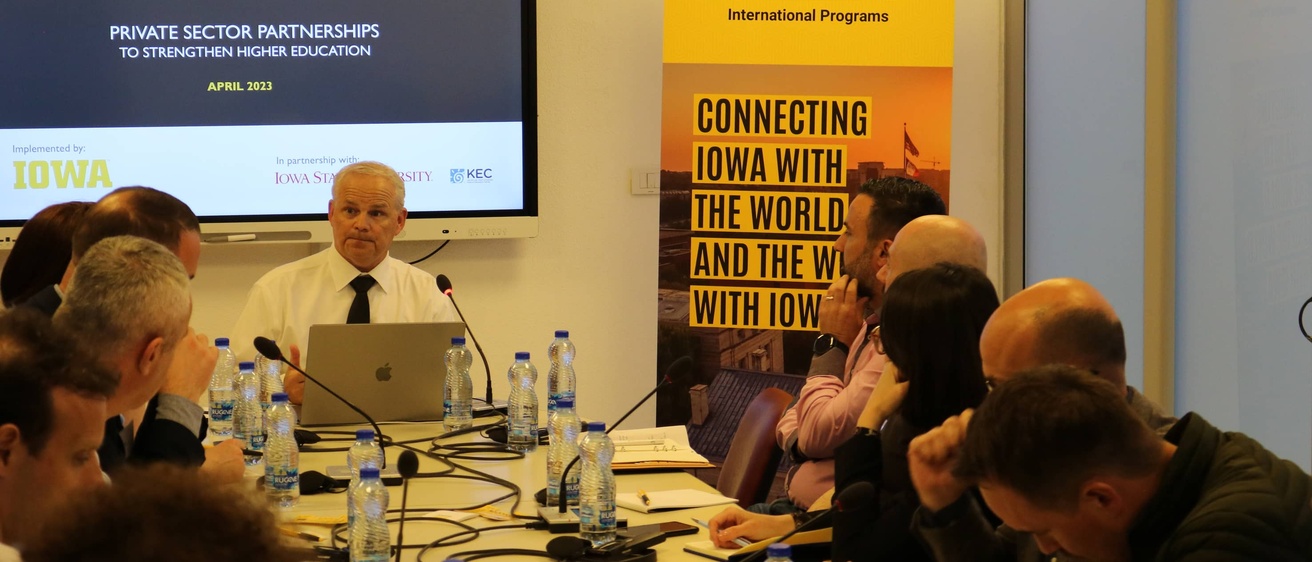The Private Sector Partnerships to Strengthen Higher Education Activity (PSPSHE) recently concluded its second session of workshops, focused on industry-university strategic cooperation.
Led by Daniel L. Clay, dean and professor from the University of Iowa College of Education, the workshops brought together representatives from private sector companies, industrial boards, professors, career centers, and research institutions.
These workshops served as a catalyst for planning immediate actions to foster collaborations between businesses and universities, benefiting students and facilitating their entry into the agriculture and information and communication technologies (ICT) labor markets. Participants engaged in discussions around challenges and best practices for collaborations that allow businesses to leverage the research capabilities of universities and tap into a talented pool of motivated students.
Covering a wide range of topics pertinent to academia and private sector partnerships, the workshops addressed practices, operations, benefits, challenges, communication channels, and various stages of collaboration. It also provided an overview of the PSPSHE activity, emphasizing its role in strengthening collaborative systems between universities and the private sector.
The workshops detailed the many benefits universities and businesses can accrue through partnering with one another. They covered the multifaceted functions and operations of industrial boards in universities, offering insightful comparisons with current practices in countries like the U.S., as well as at partner institutions such as the Universities of Peja, Prishtina, and Prizren.
Industrial boards play an important role in facilitating effective communication between academia and the private sector. Administered by the university, these boards bring together representatives from businesses, research institutions, and university staff, including faculty deans, professors, student representatives, and alumni.
These boards serve as dynamic platforms for businesses to express their human resource needs, technical knowledge requirements, and, when necessary, their interest in accessing university equipment and infrastructure. Simultaneously, universities actively seek experiential learning opportunities, guest lectures from industry experts, study visits, and collaborative utilization of cutting-edge business facilities for research and educational purposes.
During the workshop, participants were provided with insights into the various types of agreements that businesses and universities can establish through industrial boards. These agreements serve to define the respective responsibilities and commitments of all parties involved. Depending on the specific needs and preferences of the stakeholders, these agreements can be either legally binding or non-binding.
Participants engaged in several group exercises aimed at identifying promising collaboration opportunities between their institutions. One suggestion that surfaced was the crucial need to support students in creating comprehensive online profiles, enabling private sector businesses to review their profiles, and subsequently offer internship opportunities tailored to their skills and interests. Another suggestion, voiced by representatives from the agriculture private sector, highlighted their need for proficient workforce and expertise in domains such as food safety and quality testing services.
This feedback encourages universities to contemplate the expansion of their curricula to further incorporate these areas of study.
"The workshop offered a valuable opportunity to enhance our understanding of how the industrial boards at our university can strengthen their partnerships with the private sector. We had the opportunity to explore potential avenues for expanding our network of private sector partners and engaged in discussions on establishing clear responsibilities and efficient administrative systems within the industrial board. These measures are crucial in fostering seamless cooperation in the future and maximizing the benefits of our collaborations."
Arbnore Nuha, International Cooperation Officer at University of Peja
These workshops have set a solid foundation for ongoing efforts to foster meaningful relationships between universities and the private sector that benefit students, promote research endeavors, and drive innovation in the agriculture and ICT sectors.
